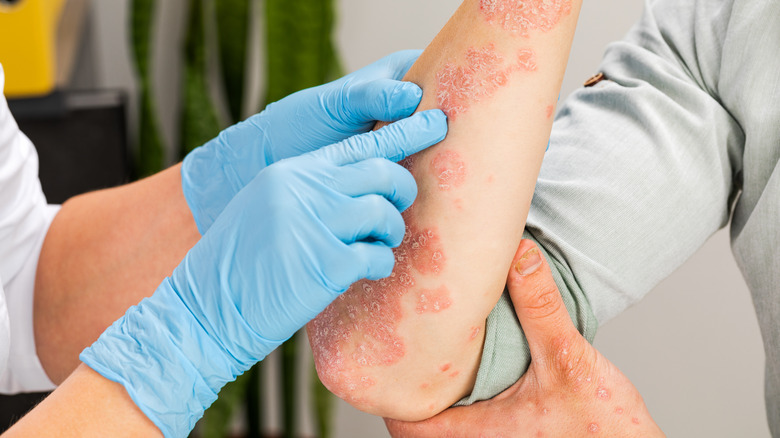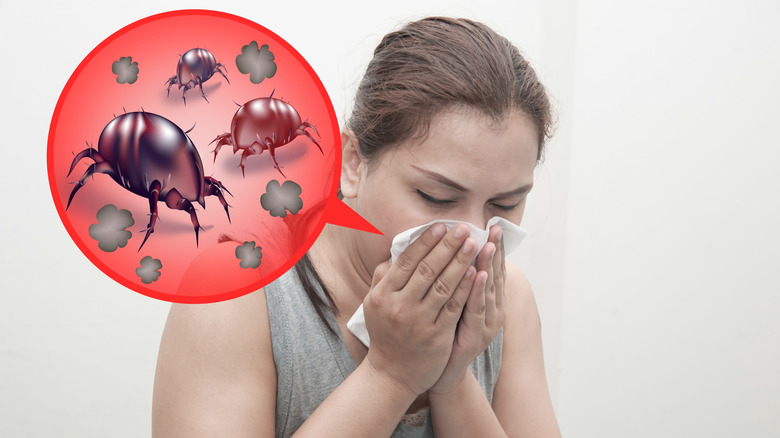Why Scientists Are Turning To Dust Mite Extract To Treat Eczema
Of the more than 30 million Americans who have some form of the seven known types of eczema, 7.3% of adults are affected by the most common type, known as atopic dermatitis (via Medical News Today).
With symptoms often developing as early as 5 years old, atopic dermatitis is characterized by the emergence of thick, cracked, dry, itchy skin patches that appear red or brown-gray (per Mayo Clinic). Commonly occurring on the hands, feet, neck, chest, and the insides of the elbows and knees, additional symptoms may include swelling and the presence of small, raised, fluid-filled bumps.
While there is no cure for eczema, treatment options include over-the-counter (OTC) products, prescription medications, and at-home bathing and moisturizing remedies, according to the National Eczema Association. Now, a recent study published in the Journal of Allergy and Clinical Immunology has found that a unique treatment may help improve symptoms for those with atopic dermatitis and dust mite sensitivities.
Dust mite extract shows promise for treating eczema
Researchers of the study used an exposure-based treatment known as allergy immunotherapy to try to reduce allergic reactivity in patients (per the American College of Allergy, Asthma, & Immunology). Participants 3 years and older with eczema and known sensitivities to dust mites were given sublingual dust mite extract to determine whether or not the immune system would become more familiar with the allergen over time.
With neither the researchers nor the participants aware of who was receiving the treatment versus a placebo, researchers assessed decreases in allergy symptoms in patients after 18 months (via Medical News Today). Researchers determined that patients who received the dust mite extract experienced a nearly 56% decrease in their symptoms, indicating a significant reduction in allergic reactivity.
However, research also revealed a 34.5% decrease in symptoms among those who received the placebo, indicating a need for further scientific investigation (via Medical News Today). In addition, researchers emphasized that "allergen immunotherapy is not recommended as a general treatment option for atopic dermatitis by current guidelines," according to the Journal of Allergy and Clinical Immunology. But researchers feel their study findings show promise for future potential as an "add-on treatment" to current frontline therapies.


